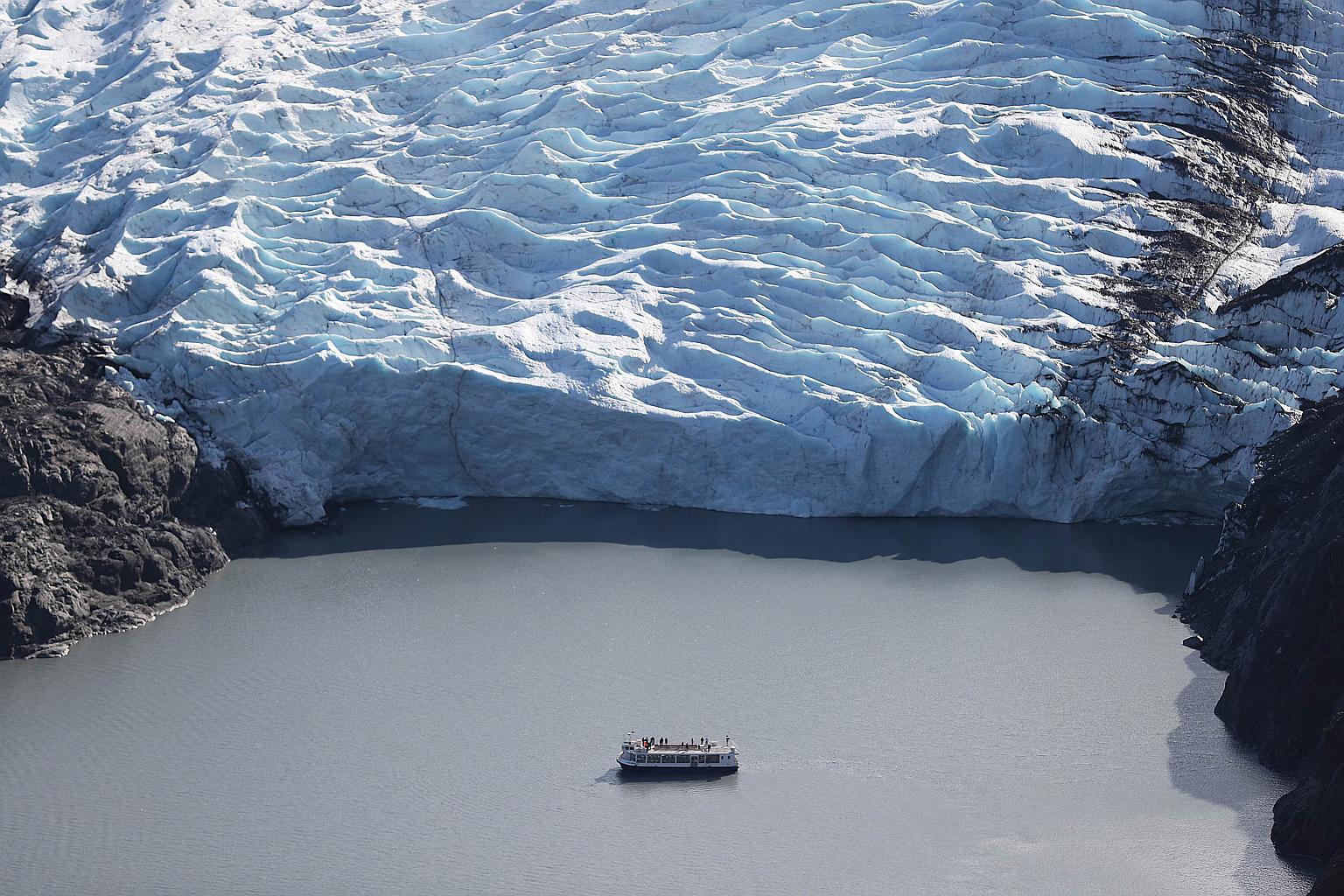Covering Climate Now
With warming oceans, seafood could be swimming away
Sign up now: Get ST's newsletters delivered to your inbox

An upcoming report by the Intergovernmental Panel on Climate Change will delve into how climate change is affecting the planet's cryosphere - the frozen parts of the world - and oceans, including marine ecosystems.
PHOTO: AFP
SINGAPORE - The world is warming and it is not just humans feeling the heat.
As the oceans warm, the availability of certain seafood and the location of fisheries around the world could be affected.
An upcoming report by the Intergovernmental Panel on Climate Change (IPCC) will delve into how climate change is affecting the planet's cryosphere - the frozen parts of the world - and oceans, including marine ecosystems.
Dr Phillip Williamson, one of the authors involved in the report, told The Straits Times that climate change threats to fisheries are local - affecting individual fisheries and their associated economies - and global, affecting overall food supply.
Dr Williamson, who is from the Natural Environment Research Council and University of East Anglia, said the United Nations Food and Agriculture Organisation had estimated that the decline in ocean productivity is likely to be between 4 per cent and 10 per cent within 30 years, depending on the world's success in slashing greenhouse gas emissions.
Temperature effects are mostly indirect, he noted, with changes in ocean circulation patterns affecting nutrients and the abundance of smaller plants and animals in marine food webs.
This could have knock-on effects for animals further up the food chain, which people eat.
But temperature can affect where fish are found, since each species has its preferred temperature range where reproduction and growth are most successful, Dr Williamson said.
"As a result, many fish populations are already northward in the Northern hemisphere, and southward in the Southern, with overall decreases occurring in tropical waters," he added.
Marine biology doctoral student Garfield Kwan, who studies fish physiology at the Scripps Institution of Oceanography in San Diego, said fishes are generally cold-blooded, and cannot moderate their internal temperatures as their surrounding oceans warm.
So one solution is to migrate to cooler water - which is often found poleward, he said.
"If this drives species usually caught in one fishery out of one market and into another, it may be a loss locally, but possibly neutral globally," said Mr Kwan.
But there are limitations to poleward expansion.
He said: "For example, there's nothing north of the north pole. Some species may also be trapped by landmass, such as the Asian continent which lies to the north of the Indian Ocean."
The impacts of ocean warming on the distribution of marine species often commercially fished for seafood can already be felt, said Mr Kwan.
"One notable example is the northward movement of the market squid (Doryteuthis opalescens). Once commonly found off the coast of San Diego, it is now rarely found here. Instead, it now readily appears in Alaska, where it has not ever been documented by indigenous populations."
Unabated warming could affect fisheries and seafood worldwide. But it is not the only threat.
Dr Williamson said warming oceans could further interact with other climate change effects, such as the decrease of dissolved oxygen in the ocean, as well as increased ocean acidification caused by extra carbon dioxide in the atmosphere.
Marine biologist Neil Hutchinson, from the Singapore campus of James Cook University, said many species of fish - such as tuna and sharks, for instance - are already overfished.
The lack of adequate management strategies, including sustainable fishing guidelines, further adds to the risks faced by this sector, said Dr Hutchinson, who is not involved in the IPCC report.
He told The Straits Times that more research was needed to develop strategies for how fisheries, and fishermen, can mitigate and adapt to these challenges.


